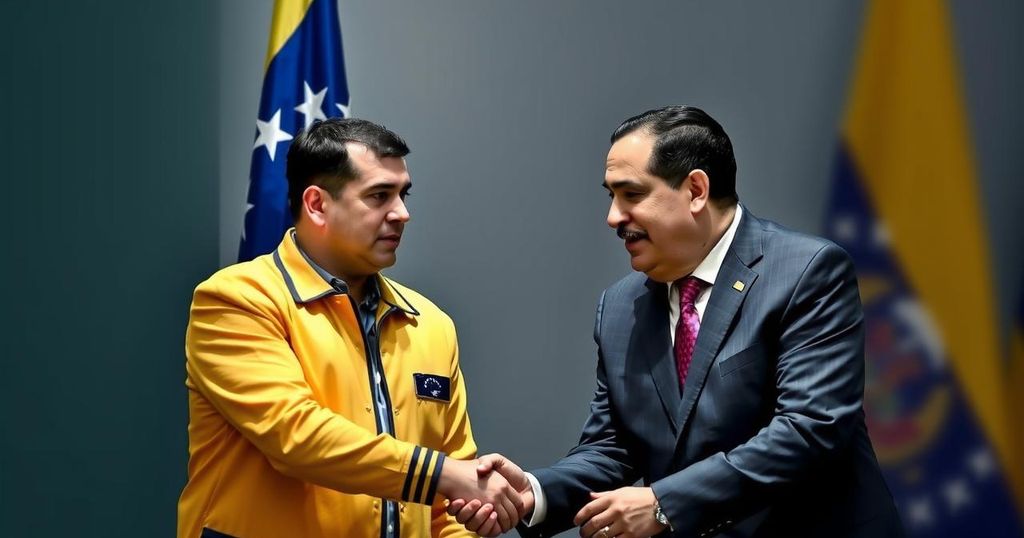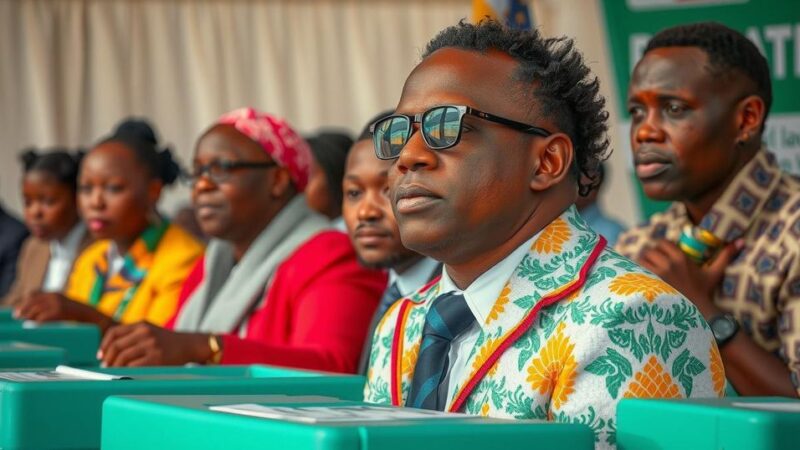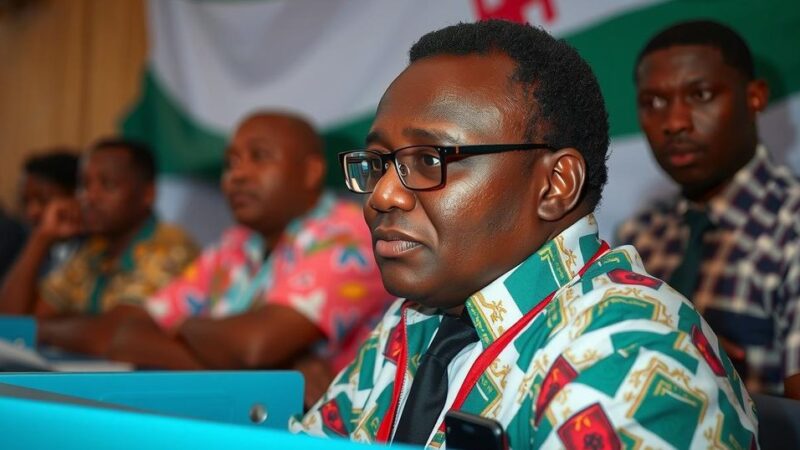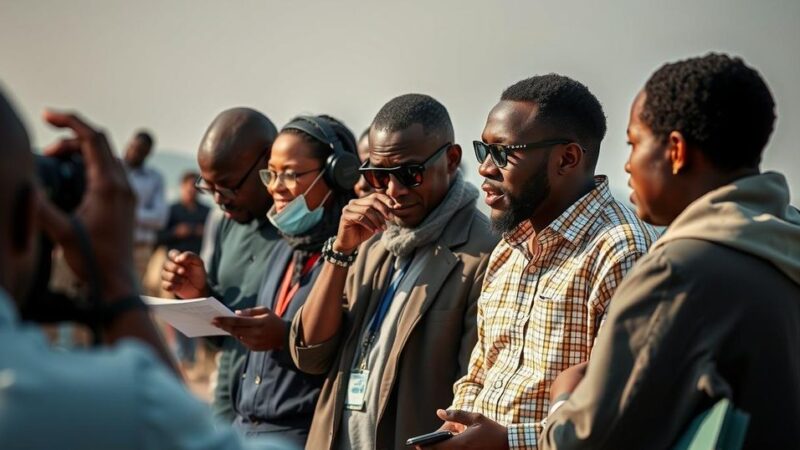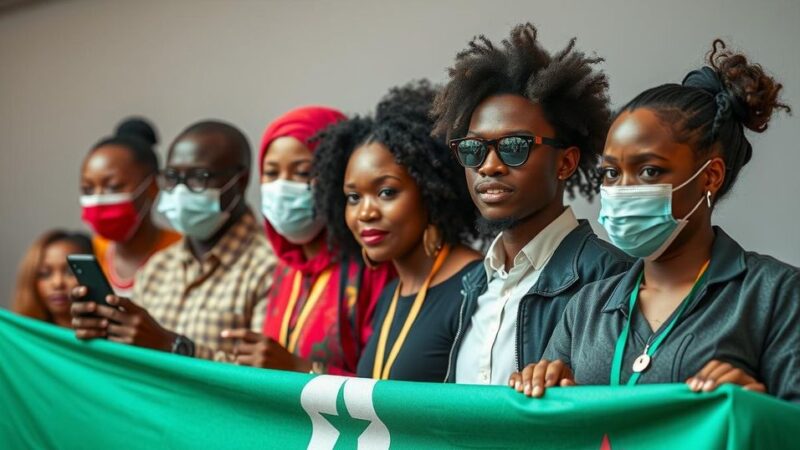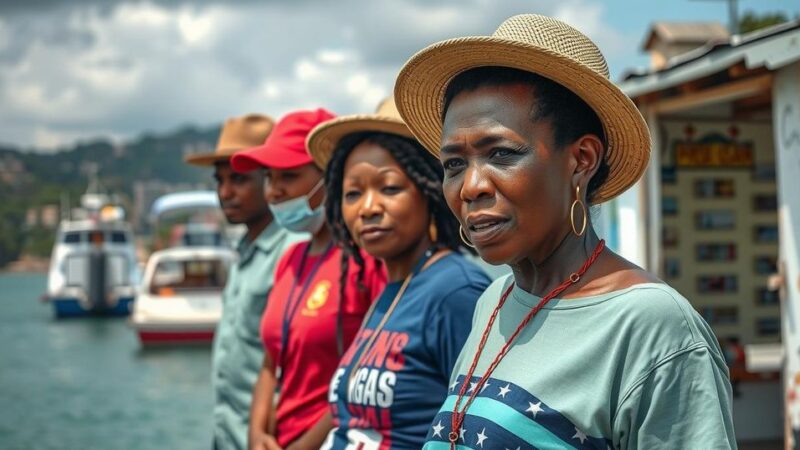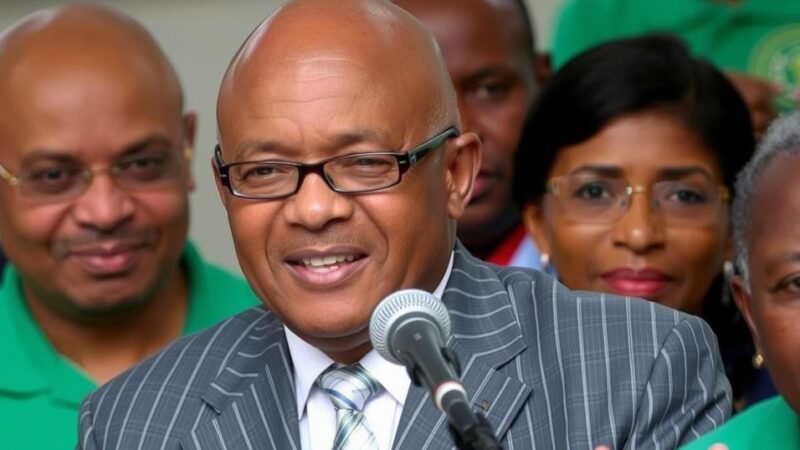Venezuelan opposition leader Maria Corina Machado urged Colombian President Gustavo Petro to recognize her faction’s electoral victory in a disputed presidential election. Speaking to the Colombian Senate, she emphasized the need for action against the Maduro regime and outlined the repressive measures that followed the election. Despite Maduro’s claim of victory, Machado advocates for the acknowledgment of the opposition’s success and highlights the implications for Colombia’s security amid ongoing guerrilla activity linked to Venezuela.
Maria Corina Machado, a prominent Venezuelan opposition leader, has recently made a fervent appeal to Colombian President Gustavo Petro to officially acknowledge her faction’s electoral victory in the July presidential elections held in Venezuela. This message was conveyed via a virtual address to the Colombian Senate, where Machado sought to amplify international pressure for the departure of the current Venezuelan regime led by Nicolás Maduro. In her address, Machado stated, “To the Government of Colombia, especially President Petro: It is time for decisions. Silence is no longer an option in the face of what is happening in Venezuela. The transition is inevitable,” emphasizing the urgency for Colombia to recognize the popular will demonstrated by Venezuelans during the disputed election. Machado has remained out of public view for the past two months amid fears of arrest. Following the election, which the ruling party claimed Maduro won – a result met with skepticism due to the lack of transparency and alleged hacking of electoral data – Machado and her coalition managed to gather and disclose vote tally sheets from over 80% of the voting machines, asserting that opposition candidate Edmundo González won by a significant margin. During her speech, she urged Colombian senators to stand as defenders of their electoral victory, highlighting the oppressive measures taken by the Maduro government post-election, including the reported detention and torture of minors. She also underscored the consequences of another term for Maduro, positing that continued instability in Venezuela would exacerbate security challenges in Colombia due to the influx of armed groups using Venezuela as a base for their operations. Efforts by leftist leaders in the region to mediate the electoral conflict, including those by Petro and former presidents Luiz Inacio Lula da Silva and Andrés Manuel López Obrador, have failed to yield significant progress, allowing Maduro to strengthen his hold on power. Following the election, González went into exile in Spain due to threats against his safety. Amidst these developments, Machado’s urgent call for action is indicative of a broader struggle for democratic governance in Venezuela, as she seeks to align regional support against what she describes as the ruthless oppression of the Venezuelan populace.
The political climate in Venezuela has been turbulent, particularly surrounding elections deemed controversial by significant segments of the population. The presidential election held on July 28 saw accusations of electoral fraud and a lack of transparency from the ruling party. Maria Corina Machado, as a leading figure of the opposition, has been instrumental in mobilizing dissent against Nicolás Maduro’s regime. Her recent appeals for international recognition of the opposition’s electoral victory reflect ongoing efforts to challenge Maduro’s rule. Furthermore, Machado highlights the implications of Maduro’s presidency on Colombia, linking it to the activities of guerrilla movements that threaten regional stability. This backdrop provides context for her urgent communication with Colombian leadership.
In conclusion, Maria Corina Machado’s call for recognition of her faction’s electoral victory represents not only a plea for international diplomatic support but also a larger appeal for the restoration of democratic norms in Venezuela. Her assertion that the Maduro administration poses a direct threat to security in Colombia underscores the interlinked nature of politics in the region. As Venezuela stands on the precipice of political change, the role of neighboring countries, particularly Colombia, is crucial in shaping the future trajectory for Venezuelan democracy and regional stability.
Original Source: apnews.com

